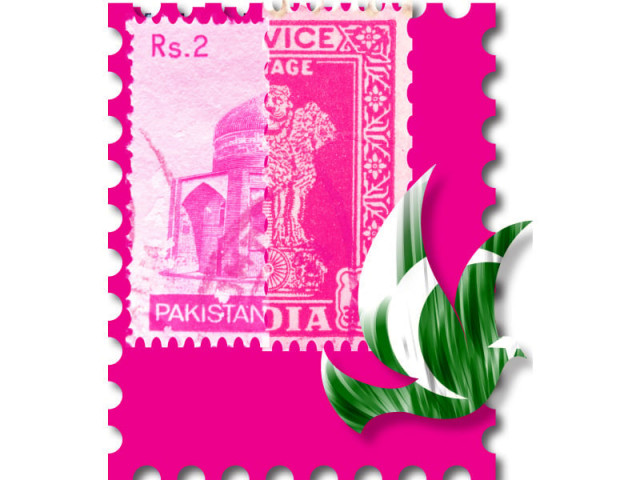P.S. I’m just like you!
After communication, exchange Pakistani students realised they were no different in culture, lifestyle than Indians.

First, there was the announcement of granting Most Favoured Nation status to India, and then came S M Krishna’s visit, which resulted in a liberalised visa regime and the lifting of restrictions on Pakistanis investing in India and vice versa.
But this kind of track-one diplomacy, as official government-to-government diplomatic exchanges are called, have proven to be painfully slow and superficial, subject to the whims of changing governments and pressure groups, and are very often stymied by terrorist attacks or transgressions by either of the parties.
A real and lasting change in the relationship between the two countries can only be brought about by altering the ingrained mindsets of the people on both sides of the border. And this can be achieved in a short period of time. Don’t believe us? Well, a civil society programme called Exchange for Change (EFC) actually managed to achieve this kind of change and create a constituency for peace in just 16 months!
The EFC is a programme run by two not-for-profit organisations, the Pakistan-based Citizens Archive of Pakistan (CAP) that works to spread education and awareness about national heritage and the India-based Routes2Roots (R2R) that is involved in building cultural and trade ties between Saarc countries. In 2010, the two organisations dabbled in a unique project: it got schoolchildren from the two countries to write letters to each other, opening an unlikely communication channel with ‘friends’ from the ‘enemy’ territory.
The project involved 2,400 children from 10 schools across Delhi, Mumbai, Lahore and Karachi. Every few days or weeks, a CAP or R2R representative would arrive at the schools with a stack of letters, postcards and photographs sent by their cross-border counterparts and hand them out to the excited students who would eagerly pore over them and write back. At the end of the project, some Pakistani students even managed to visit Delhi, while their Indian counterparts took in the sights of Lahore.
With this simple initiative, the age-old barriers of mutual suspicion and hatred began to melt.
The EFC strived to “bridge the intergenerational divide between two great nations, India and Pakistan,” as Sharmeen Obaid Chinoy, the Oscar award-winning filmmaker and president of CAP, put it.
“The exchange will hopefully help students realise that the children on the other side of the border are just like them and have similar hobbies and daily routines.” said Tina Vachani, co-founder of Routes2Roots. “When students participating in the project voice their experiences to other friends and family members, hopefully, it will be worth more than a drop in the ocean and a chain message will spread from student to student.”
What the EFC achieved at the end of the project was nothing short of remarkable. After a year-long communication, exchange the children, who initially overwhelmingly considered their counterparts from across the border as ‘hostile,’ realised they were in fact no different in their culture and lifestyle than the ‘other’.
The EFC reports that as many as 45 per cent of the participating students agreed that Pakistan and India share many similarities, which they were unaware of before the project, while 72 per cent stated that they now believe that India and Pakistan can co-exist peacefully. Around 54 per cent of the participating Pakistani students said that their opinion about India had been positively affected and 67 per cent of them said they wanted the programme to continue and would like to know more about India.
Hence, when children got to know each other first hand, stereotypes were shattered and they were able to form their own opinions about the others. What the governments of the two countries could not achieve in so long — building a peace constituency that can ensure amicable relations — a few hundred schoolchildren managed to do. Perhaps, members of the two governments and their armies need to undertake a similar exercise to break the ice once and for all!
Taking a cue from the positive response, the EFC has now decided to launch a second round of the programme this year. This time, around 3,500 school children between the ages of 10 and 14, from 17 schools across Karachi, Rawalpindi, Lahore, Delhi, Chandigarh and Mumbai will become pen pals.
“When we launched this project in 2010 we believed that this was one small step towards enabling our next generation to build bridges with India,” says Swaleha Alam Shahzada, executive director of CAP. “Now as we relaunch EFC 2012 - 2013, we know that we have made a giant leap in our shared history. Our stories are the same — we just need to share them!”
All material courtesy of CAP and Routes2Roots
Published in The Express Tribune, Sunday Magazine, September 23rd, 2012.
View more pictures here.
Like Express Tribune Magazine on Facebook and follow at @ETribuneMag



















COMMENTS
Comments are moderated and generally will be posted if they are on-topic and not abusive.
For more information, please see our Comments FAQ